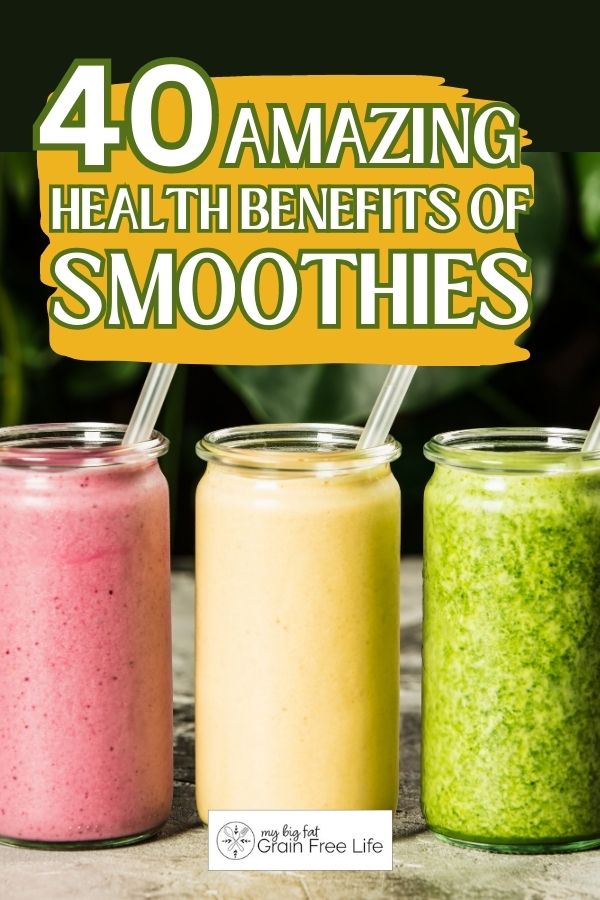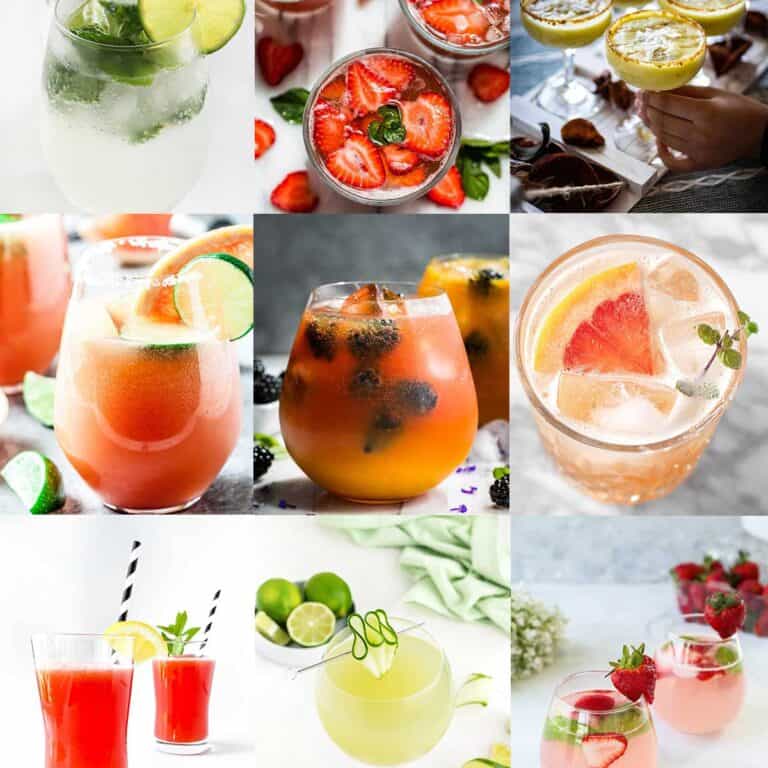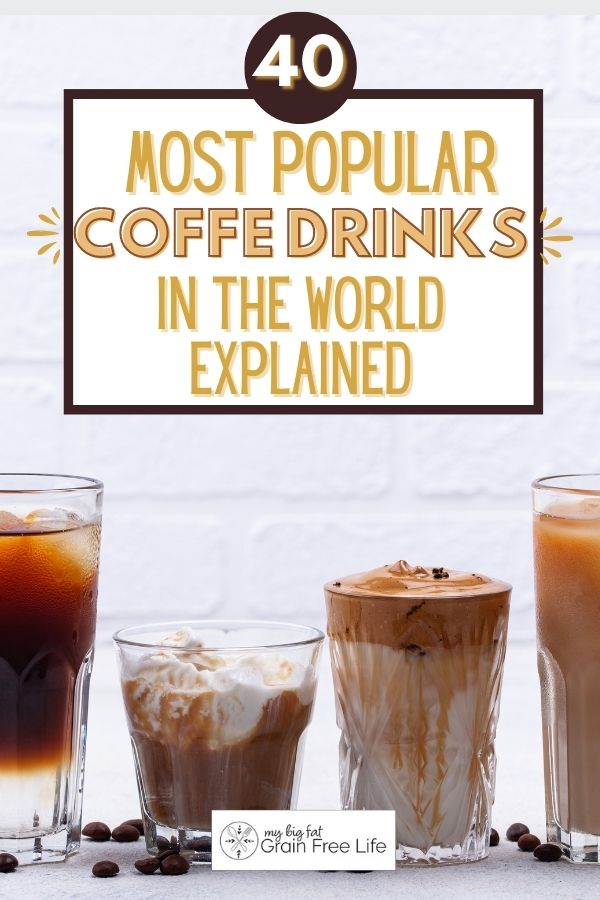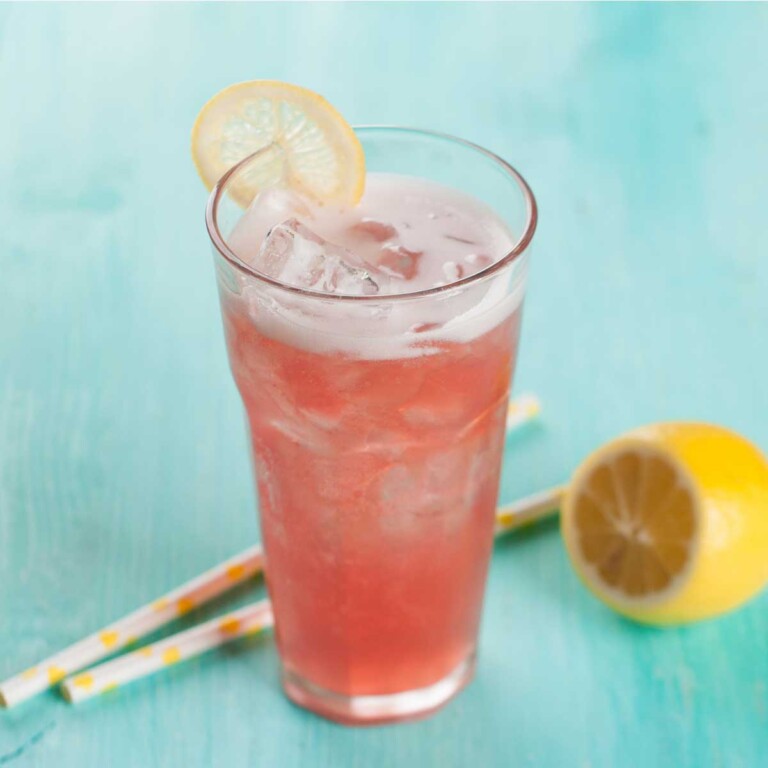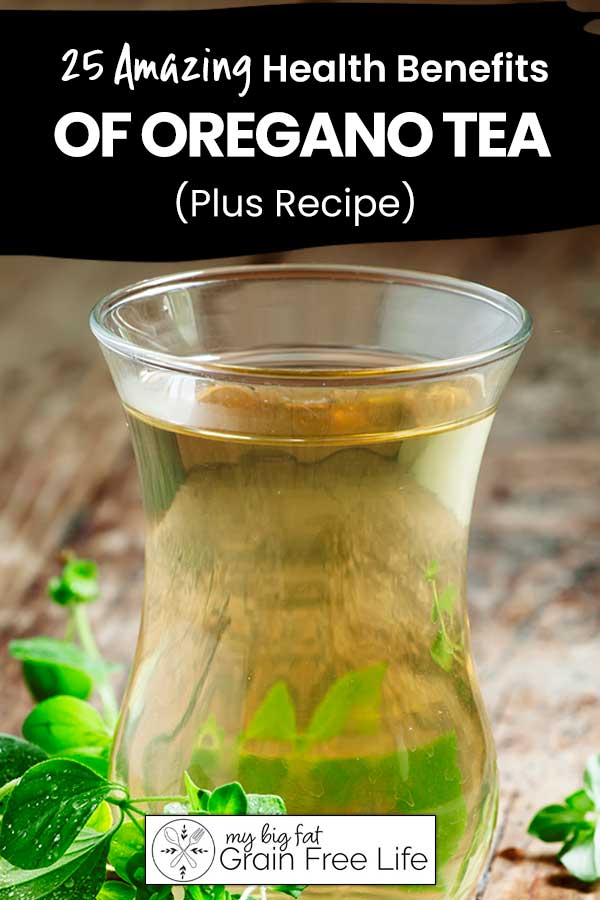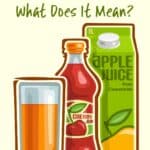Fruit Juice From Concentrate: What Does It Mean?
This post may contain affiliate links. If you make purchase after clicking a link, I may receive a commission at no extra cost to you.
Last Updated on April 15, 2024
Do you wonder about the differences between ‘from concentrate’ and ‘not from concentrate’ juices? Lots of people wonder “What Does From Concentrate Mean?”, so let’s take a look at the different types of juice and compare them side-by-side.

What Does From Concentrate Mean?
When a juice is from concentrate, it means that all the water content was extracted from the fruit to make a concentrated form.
When I think of juice from concentrate, it takes me back to my childhood. We always had the frozen tubes of juice concentrate (grape was my favorite!). Of course they also had other not-so-good-for-you ingredients, but healthy choices were not a part of my growing up years.
We used to dump the frozen juice concentrate into a pitcher and add water (but less water than it called for because we loved sugar!). The other thing that comes to mind is Kool-Aid. All the moms back in the 80’s had the recognizable tupperware pitchers in burnt orange full of Kool-Aid, along with tons of sugar and food dyes. Yikes!
What Does Not From Concentrate Mean?
Not from concentrate juice is the pure juice directly squeezed from the fruit. It has not undergone any concentration process. This type of juice usually has a fresher taste as compared to juice from concentrate.

What is the Difference Between From Concentrate and Not From Concentrate?
The main difference between juice from concentrate and not from concentrate is the manufacturing process. Juice from concentrate undergoes extraction, filtration, and evaporation, while not-from-concentrate juices are simply squeezed from fresh fruits.
How it’s Made
Learn how juice from concentrate and not from concentrate differ in how they are made (processed).
Juice From Concentrate
- Extraction: The juice is extracted from the fruit, often by pressing.
- Filtration: The extracted juice is then filtered to remove pulp, seeds, and other fruit byproducts.
- Evaporation: After filtration, the juice is heated to evaporate excess water, creating a concentrated form.
Juice Not From Concentrate
Juice not from concentrate is made by simply squeezing fresh fruits. The fresh juice may undergo pasteurization to kill bacteria and prolong its shelf-life, but it does not go through concentration.
Other Healthy Drinks
- Infused Water
- Types of Tea
- Banana Peel Tea
- Carrot Leaf Tea
- Health Benefits of Boiling Pinapple Peel
- Health Benefits of Smoothies
Types of Fruit Juice
There are various types of fruit juices available in grocery stores, including freshly squeezed, raw unfiltered, not from concentrate, 100% juice from concentrate, carbonated juice drinks, juice cocktails, fruit punch, and powdered juice concentrates, among others.
Let’s take a look at each type of fruit juice.
Freshly Squeezed
This type of juice is made by squeezing fresh fruits, typically oranges for orange juice. It’s the healthiest juice option as it retains the most nutritional value and has no added sugars or preservatives. However, it has a shorter shelf-life and needs to be consumed quickly.

Raw, Unfiltered
Raw juice is made from whole fruit without any filtration process. As a result, it contains more fruit pulp and maintains high nutritional value. It doesn’t contain any added sugars or artificial compounds, but its shelf-life is limited due to the lack of preservatives.
Not from Concentrate
This juice is pasteurized right after being squeezed from fresh fruits and then bottled. It offers a good balance between nutritional value and longer shelf life compared to freshly squeezed juice. It contains natural fruit sugars and doesn’t have added sweeteners.

From Concentrate
As you learned above, this type of juice is made by removing water content from fresh juice to create a concentrated form, which is then reconstituted with the correct amount of water.
Manufacturers of concentrates often add flavor packs and additional ingredients like ascorbic acid for preservation. It’s a convenient way to store and transport juice but has less nutritional value than not-from-concentrate juices.
100% Juice From Concentrate
Similar to ‘from concentrate,’ but it assures that all its content comes from real fruit juice without any additional sweeteners or flavors. However, the high temperatures used in the concentration process can reduce its nutritional value.
Carbonated Juice Drinks
These juices are fruit concentrate mixed with carbonated water, added sugars, and sometimes artificial colors or flavors. While they may taste good, their high sugar content can contribute to daily calories intake and potential health risks like high blood pressure and heart disease.
Fruit Juice Cocktails
These drinks contain a percentage of real juice mixed with water, added sugars, and often artificial flavors or colors. Reading juice labels is crucial here as the fruit content can be as low as 10%.
Fruit Punch
A blend of different fruit juices with added sugars and sometimes artificial colors. Its nutritional value depends on the proportion of real fruit juice used.
Juice Beverage
These juice products are drinks that contain a small amount of juice combined with water, sweeteners (like high fructose corn syrup), and artificial flavors or colors. They offer little nutritional value.
Fruit Juice Nectar
This type of juice includes fruit pulp along with juice, making it thicker than most juices. It often contains added sugars but offers more fiber due to the presence of pulp.
Powdered Juice Concentrates
These are concentrated juice powders that need to be mixed with water before drinking. They’re convenient and have a long shelf life but often contain additional sugars and lack the health benefits of fresh juice. Think Crystal Light, Kool Aid, etc.

Juice From Concentrate Vs Not From Concentrate
Let’s compare these two types of juices in terms of taste, ingredients, making process, nutrients, health benefits and cost.
Taste Comparison: Concentrate Vs Not From Concentrate
Not-from-concentrate juices often have a fresher flavor, as they are closer to the taste of fresh-squeezed juice.
Juice from concentrate can sometimes have additional ingredients like flavor packs added to restore the original juice flavor that gets lost in the concentration process.
Concentrate Vs Not From Concentrate Ingredients Comparison
The main difference here is that juices not from concentrate usually contain only pure juice and possibly added ascorbic acid (Vitamin C), while concentrated juice may have added sugars or high-fructose corn syrup. Always check the ingredient list on nutrition labels to be sure.
The Juice Making Process Comparison: Concentrate Vs Not From Concentrate
Fruit and vegetable juice concentrates goes through a process where water content is removed, creating a concentrated form that takes up less space and has a longer shelf life. This concentrated juice is then rehydrated at a later stage by adding back the correct amount of water.
Not from concentrate juices are simply squeezed from fresh fruits and pasteurized for safety and longer shelf life.
Concentrate Vs Not From Concentrate Nutrients Comparison
Both types of juice can provide nutrients, but fresh juice often retains more natural fruit sugars and nutrients from the whole fruit than concentrated juice, which can lose some nutritional value due to high temperatures used in the concentration and pasteurization process.
Health Benefits Comparison: Concentrate Vs Not From Concentrate
While both types offer health benefits, not from concentrate juices tend to be a better choice as they typically contain fewer additional sugars and higher fruit content.
Cost Comparison for Concentrated Juice Vs Not Concentrated
Juice from concentrate is typically cheaper than not from concentrate. This is because the process of making juice from concentrate involves removing the water, which reduces the weight and volume of the juice, making it cheaper to transport and store. Once it reaches its destination, water is added back in, and voila! – you have juice.
What to Look for on Juice Ingredient Lables
When reading juice labels, it’s important to look for 100% fruit content and avoid juices with added sugars or high-fructose corn syrup.
FAQ About Concentrate Vs Not From Concentrate
Still have more questions about juice?
Is Juice Better From Concentrate or Not?
Not-from-concentrate juice is usually the best choice as it retains most of the nutrients and natural flavors of the original juice. However, juice from concentrate can also be a healthy option if there are no added ingredients.
What Are the Disadvantages of Juice From Concentrate?
Juice from concentrate may have less nutritional value due to the high temperatures used in the concentration process. It might also contain additional sugars and artificial compounds.
Is 100% Juice the Same as Concentrate?
No, 100% juice means that all contents are from the original juice, while concentrate refers to juice that has been dehydrated and later reconstituted by adding water.
Is Juice From Concentrate Real Fruit Juice?
Yes, juice from concentrate is made from real fruit juice but has undergone a process to remove water content.
Does Juice From Concentrate Have Less Vitamin C?
The concentration process can reduce the level of Vitamin C in juice. However, many manufacturers add ascorbic acid back into the juice to boost its Vitamin C content.
What’s the Difference Between Fruit Concentrate and Fruit Juice Concentrate?
Fruit concentrate refers to any type of concentrated fruit product, while fruit juice concentrate specifically refers to concentrated fruit juice.
Final Thoughts
While not from concentrate juices offer more nutrients, juice from concentrate is a convenient way to enjoy fruit flavors with a longer shelf life. Always read the juice labels to understand what you’re consuming.
Resource Links
- https://www.nwnaturals.com/health-and-nutrition-in-juice-concentrates
- https://www.ncbi.nlm.nih.gov/pmc/articles/PMC4352186/
- https://www.ncbi.nlm.nih.gov/pmc/articles/PMC8228760/
- https://www.mayoclinic.org/healthy-lifestyle/nutrition-and-healthy-eating/expert-answers/juicing/faq-20058020
- https://health.clevelandclinic.org/juicing

